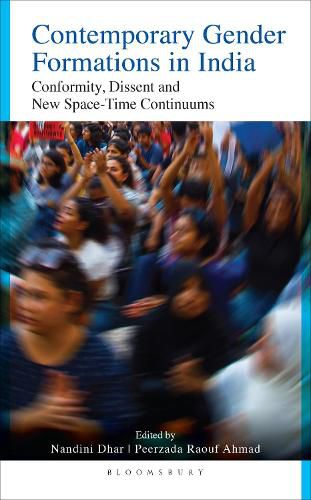Readings Newsletter
Become a Readings Member to make your shopping experience even easier.
Sign in or sign up for free!
You’re not far away from qualifying for FREE standard shipping within Australia
You’ve qualified for FREE standard shipping within Australia
The cart is loading…






The essays in this volume look at how gendered demands for both temporal and spatial access are articulated within specific spaces. The essays look at such questions as, how do categories such as ‘time’ and ‘space’ intersect with each other in complementary and contradictory ways? In order to find tangible forms, do such articulations look for alternative ‘spaces’ themselves? Can digital space, for example, be described as an ‘alternative space’ within which a certain generation of young feminists has politically come of age in the post-liberalisation era?
The volume attempts to provide commentaries and theorisations of the fact that in recent years, as we have witnessed in India, the emergence of a new feminist subjectivity. Such a phenomenon is also accompanied by the growth of a new female subject, within which the fulcrum of this new feminist subjectivity primarily rests. Predominantly urban, predominantly over-educated, Hindu, upper-caste and upper middle class, this new female (and feminist) subjectivity demands rigorous theorisation.
$9.00 standard shipping within Australia
FREE standard shipping within Australia for orders over $100.00
Express & International shipping calculated at checkout
The essays in this volume look at how gendered demands for both temporal and spatial access are articulated within specific spaces. The essays look at such questions as, how do categories such as ‘time’ and ‘space’ intersect with each other in complementary and contradictory ways? In order to find tangible forms, do such articulations look for alternative ‘spaces’ themselves? Can digital space, for example, be described as an ‘alternative space’ within which a certain generation of young feminists has politically come of age in the post-liberalisation era?
The volume attempts to provide commentaries and theorisations of the fact that in recent years, as we have witnessed in India, the emergence of a new feminist subjectivity. Such a phenomenon is also accompanied by the growth of a new female subject, within which the fulcrum of this new feminist subjectivity primarily rests. Predominantly urban, predominantly over-educated, Hindu, upper-caste and upper middle class, this new female (and feminist) subjectivity demands rigorous theorisation.